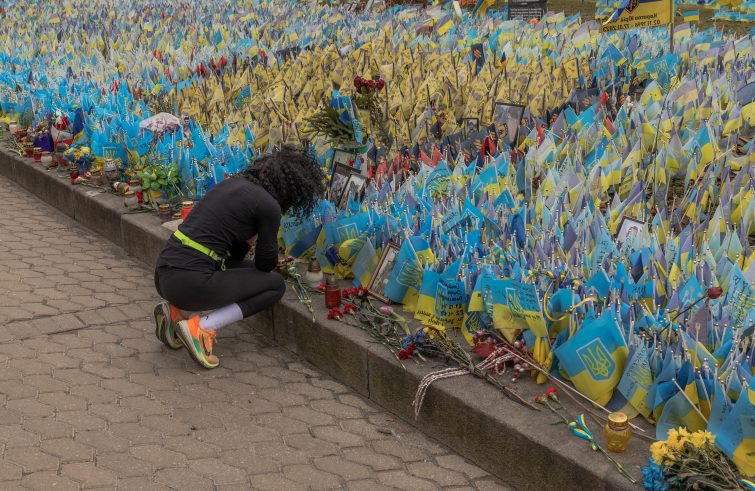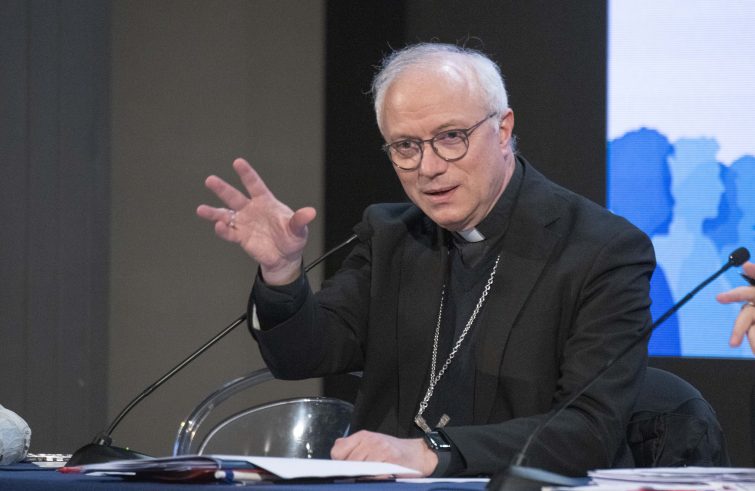
“It is our duty to evangelise, to speak of Christ to the restless heart of man, to proclaim and to bear witness, because Christ can only be proclaimed by bearing witness in our lives and in the unity of the Church.” Those were the words of Monsignor Giuseppe Baturi, Archbishop of Cagliari and Secretary General of the Italian Bishops’ Conference, on Easter Sunday.

This year’s Easter is celebrated in a bloodstained world: the Moscow attack, the tens of thousands dead in Gaza and the Middle East, two years of war in Ukraine.
This is a time of suffering that recalls the Passion of the Lord and the account of violence, betrayal, abandonment in fear. It is the paradigm of evil. We know it and experience it every day. Strikingly, it feels as though it were always present in the times when Christ was sent to us for the salvation of the world. We are familiar with this pain, just as we are familiar with wickedness and mockery. It stems from the nastiest inventory of our humanity, which makes the headlines these days.
Are there glimmers of light?
We should not overlook the figures of compassion and mercy in the Passion story. I am thinking, for example, of Mary Magdalene, of the disciple whom Jesus loved so much, of Mary: there is much pain and suffering, but there are also glimmers of light and love that can illuminate the darkness of the night as we wait for dawn. Ultimately, Easter also means being able to see and believe in the signs of goodness that exist in the world.
It means believing in the possibility of a new world, to believe that the impossible will be made possible again, that life is greater than death.
The Church in Italy has always shared in the suffering of the world.
The Christian community celebrates the Resurrection, gathers in prayer and stands by the bereaved and the afflicted. The Church in Italy has received from history and from the Papal Magisterium an important mandate: to be a sign of renewed and reconciled humanity. We express this continuously, first of all through our unceasing prayers for an end to war, for peace, for freedom, for reconciliation in forgiveness, and then through our commitment to friendship between peoples, through visits or through the funds from the “Eight per Thousand” tax, which we allocate to the poorest areas. Our aim is to create networks of friendship where war is the driving force of enmity, and to alleviate, through concrete acts of solidarity, the harshest consequences of conflicts, which always affect defenceless peoples. In Ukraine, in Gaza, in Congo, in Syria. We want to be like the mysterious wayfarer who walks with the disciples, close to those who are searching and suffering, to bring them comfort and show them a way of hope.
Your Excellency, is it so difficult to promote dialogue between peoples who are so often brothers?
Whenever ideologies triumph over the evidence of a humanity of fraternity, enmity prevails. It is then that people have no hesitation in hurting one another, in looking for accomplices, in reducing others to victims. This way of thinking is ruthless and contrary to the Gospel. A very beautiful Byzantine prayer invites us to call our enemies our brothers. But only the Risen One can do this. For this reason, in certain contexts
The Christian presence is fundamental because it is an invitation to encounter through forgiveness.
If Christians were to disappear from the Holy Land it would hurt everyone, because Christians preach that forgiveness and reconciliation are possible.
What, in your opinion, are Italy’s most pressing challenges?
It is our duty to evangelise, to speak of Christ to the restless heart of man, to proclaim and to witness, because Christ can only be proclaimed by bearing witness in our lives and in the unity of the Church. Finally, there is the question of solidarity in the face of economic and educational poverty. This requires the commitment of civil authorities and the creativity of Christian communities. I am also thinking of young people, of their suffering, sometimes cried out and sometimes silenced, which all too often turns into violence against themselves and their own bodies. We must accompany these young people and offer them hope.
A few days ago, Cardinal Matteo Zuppi said that “the country’s [lack of] resilience is a cause for concern”.
Italy’s resilience is certainly at stake, and we must continue to ensure the solidarity and cohesion that are fundamental to national unity. A country can only grow together and as one.
A school in the town of Pioltello has decided to suspend classes on the last day of the holy month of Ramadan. Is this a wake-up call for the presence of Catholics in Italy?
A form of secularism that does not recognise the religious dimension of the community is more worrying to me. I would like Christians to enter into dialogue with all religions, to be able to recover the religious dimension of man’s relationship with God in a context of clear identity and open friendship. The two are not incompatible. If Christianity is not reduced to a mere sociological or identitarian component, but is open to encounter, a nation like Italy can be open to other cultural, ethical and religious dimensions. This is to the benefit of all, in conformity, of course, with the law.
Elections to the European Parliament are scheduled for next June. What can we expect?
A new image of Europe. What is happening on its borders, in Ukraine, but also in Gaza, signals the need for a European initiative for peace, an initiative to protect the human person and the rights of the communities.












